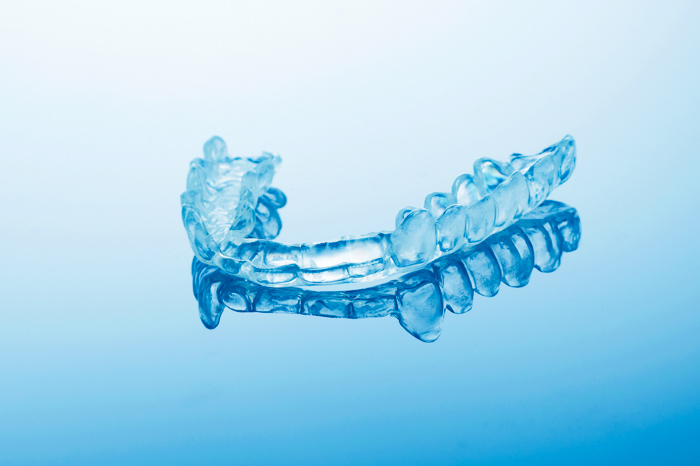Dental Services
Bruxism appliance therapy

The term bruxism is defined as: “the habit of clenching and grinding the teeth. It most often occurs at night during sleep, but it may also occur during the day. It is an unconscious behavior, perhaps performed to release anxiety, aggression, or anger.”
Bruxism may be mild and may not even require treatment. However, it can be frequent and severe enough to lead to several problems. Unfortunately, people who suffer from bruxism usually are not aware of it and as such, are not diagnosed with the condition until complications manifest themselves. Therefore, it is important to know the signs and symptoms of bruxism and to seek regular dental care.
Possible signs, symptoms and complications that may occur include:
- Tooth grinding or clenching, which may be loud enough to wake your sleep partner.
- Teeth that are worn down, flat, chipped or fractured.
- Sensitive teeth.
- Mobile teeth.
- Receding gums and/or teeth with “notches” at the gum line.
- Periodontal pockets (loss of supporting bone around the teeth).
- Formation of bony ridged or projections.
- Cheek irritation or chewed tissues on the inside of the cheek.
- Sore muscles of the cheeks and temples.
- Headaches (especially upon waking).
- Earaches (because of severe jaw muscle contractions).
- TMJ problems.
In order to greatly decrease the damage caused by bruxing, an appliance is used to cover and prevent the teeth from coming together, allowing the muscles to relax.